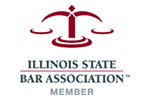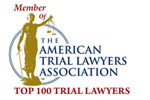800.825.9260
Employment Non-Compete Agreements: Are They Binding?
They go by various names: nonsolicitation agreements, restrictive covenants, non-compete clauses. They are all contracts in which a worker agrees that they will not engage in competition with the employer after leaving the company.
Lately, a disagreement has arisen between Illinois courts and federal courts respecting enforceability of some of these agreements and Chicago business lawyers have been trying to come to grips with the conflict. An Illinois Appellate Court in the case of Fifield v. Premiere Dealer Services, set the legal world abuzz with a ruling that said that two years of continued employment is required when a current employee is given a non-compete agreement to sign and the only thing given in return is a promise of continued employment.
However, several federal courts have refused to apply the Fifield case to other situations. Generally, these agreements must meet certain criteria before they are legally enforceable. The activity the employee is prohibited from engaging in must be reasonably limited in time, in geography, and in the type of customers who may not be solicited.
And as with all contracts, there must be adequate consideration given by the employer; it is a basic tenet of contract law that, for a promise to be legally enforceable, the promisee (the one to whom the promise is given) must have given something (i.e., consideration) in exchange for the promise. While it may appear obvious that an employer’s grant of employment should constitute consideration, it is on this point that controversy has arisen.
The issue now being debated in the courts is whether the employment must be for some minimum period of time, and if so, for how long? Consider the following facts: When an employee begins his employment, he signs an agreement with his employer that, for a period of two years after his employment terminates, he will not engage in competition. Thus he may agree not to solicit any customers, dealers, or agents of the employer, or otherwise compete. But suppose the employee resigns after working only four months, then goes to work for a competing company. (These are the basic facts of the Fifield case.) Did the four months of employment constitute adequate consideration, so as to render the agreement enforceable? Or, since the period of employment was so brief, can the former employee just forget about it.
Until recently, the Illinois rule simply said that to constitute adequate consideration to support an employment agreement, the continued employment must continue “for a substantial period.” But one recent Illinois Court has promulgated a more specific rule: To qualify as adequate consideration, the employment must have been for at least two years.
But, Fifield notwithstanding, the federal courts in applying Illinois law have refused to follow the holding in the Fifield decision. And how, by the way, do cases involving Illinois law wind up in federal court? Typically, it comes under the rubric of “diversity of citizenship.” The federal court may hear cases where the parties are citizens of different jurisdictions (provided that the amount in controversy is more than $75,000). In the Traffic Tech case, for example, the plaintiff, Traffic Tech, was a Canadian corporation providing logistical services to an international customer base. It had hired Jared Kreiter, the defendant, as its vice-president of business development. Of course Kreiter had signed a non-compete agreement when he was hired, but after about one year he resigned and went to work for an Illinois company offering similar services, Total transportation Network.
The principal reason given by the courts in refusing to follow the Fifield decision issued from an intermediate appellate court in Illinois, not from the Illinois Supreme Court. Because it came out of a lower court, the Federal Courts did not believe it was obliged to follow it. In more than one of these federal cases, the court noted that the Illinois Supreme Court itself has provided no clear direction on the issue, and it could not be predicted how the Illinois Supreme Court might eventually rule on the matter. In Traffic Tech, the most recent case, the Federal Court simply concluded: “The Illinois Supreme Court is not likely to adopt a two-year, bright-line rule in assessing whether an employee was employed for a ‘substantial period of time’ so as to establish adequate consideration to support a post-employment restrictive covenant.”
So, what are employers to do? The obvious answer is to consult with knowledgeable and experienced Chicago Business Lawyers who can help set up an enforceable restrictive covenant.
George Bellas is the senior partner in Bellas & Wachowski Attorneys at Law, a Park Ridge law firm. He is recognized as an Illinois Super Lawyer in the field of business litigation and has been identified as one of the top 100 trial lawyers in Illinois. The firm serves as trusted advisors to their Chicagoland area business clients.










